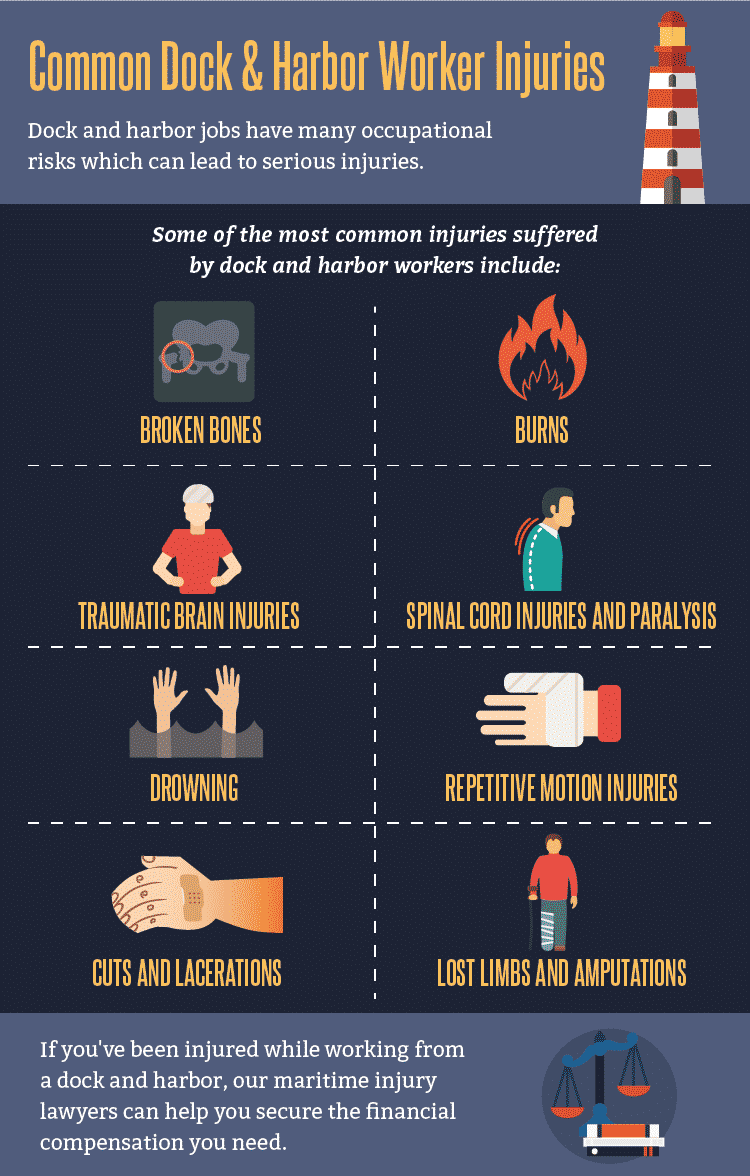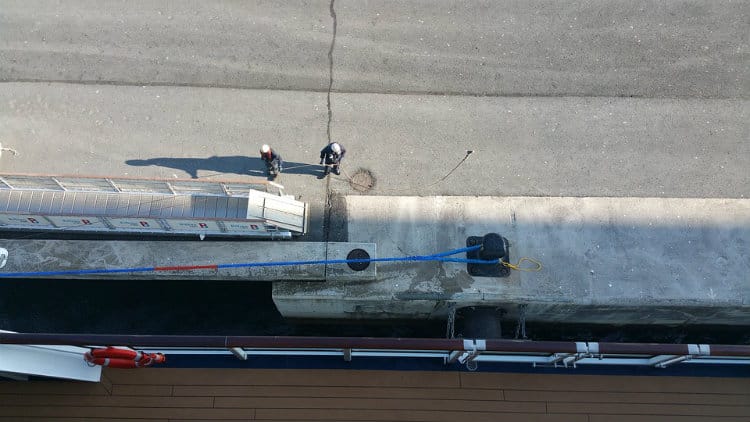If you or a loved one has recently been injured while working at a dock or port, you likely have several questions:
Contact one of our experienced maritime injury lawyers to find out more about your rights.
Dockworkers play a vital role in making sure goods, products, and supplies are loaded, unloaded, and repaired at our nation’s docks and ports – along with a variety of other work duties. This type of work is physically strenuous and dock workers are regularly exposed to a variety of hazards during their shifts. When a dock worker suffers a serious injury in a workplace accident, it’s important that he or she receives appropriate financial compensation during their recovery.
Longshoremen, dock, and harbor workers who get injured on the job are entitled to benefits under the Longshore and Harbor Workers’ Compensation Act (LHWCA). Unlike most other claims for workers’ compensation, LHWCA claims are made at the federal level. Seeking financial compensation for a dock worker injury is a complex process, as there are multiple aspects of maritime law that may apply.
To learn more, contact our Jones Act lawyers today.

Maritime workers who work in and around the navigable waters of the US either building, maintaining, or repairing ships are covered under the LHWCA. Since this is a federal law, injured workers must file a claim through one of 15 nationwide District Offices.
If you qualify for benefits, you could recover the following benefits following a work injury:
In some cases, dock workers may be classified as seamen if they spend 30% of their time at sea. These workers would be eligible to apply for compensation in a Jones Act claim, instead of the LHWCA.
Dock work requires daily exposure to a number of inherent risks which could cause an accident and serious injuries. Harsh weather, hazardous work conditions, and defective or poorly maintained machinery can all increase the risk of suffering a serious injury.
Common dock hazards which lead to worker injuries include:
Many of these accidents can be avoided by properly following safety regulations, but an unexpected accident can happen even in the safest workplaces.
When something goes wrong and an accident occurs at a dock or harbor, workers often suffer serious or even fatal injuries. These injuries frequently require extended periods away from work and expensive medical costs. Additionally, the physically strenuous nature of dock work often leads to repetitive motion injuries due to overworking the same muscle groups over long periods of time.
Common injuries in dock and harbor work accidents include:
These injuries and any other injury or illness directly related to work conditions are eligible for benefits under the Longshore and Harbor Workers’ Compensation Act.
A maritime work injury claim is more complex than your average workers’ compensation claim. There are numerous laws that may apply, depending on the nature of your employment and your injury. In order to recover the full financial compensation you’re entitled to, it’s often necessary to have the guidance of an experienced lawyer who specializes in maritime law.
In some cases, you may have the option to file a lawsuit in addition to seeking work injury benefits. Workers who are covered under the Jones Act can sue their employers when negligence contributes to an injury, and other workers may have the option to sue negligent third parties (someone other than your co-workers and employer) when they cause a work injury through negligence.
If you’ve recently been injured while working at a dock or harbor and are struggling to make sense of your options, we’d love to help. Contact us today to schedule a free consultation with one of our experienced maritime injury lawyers.
Continue Reading: Available Forms Of Financial Compensation For Injured Ship Crew Members

 info@legalherald.com
info@legalherald.com